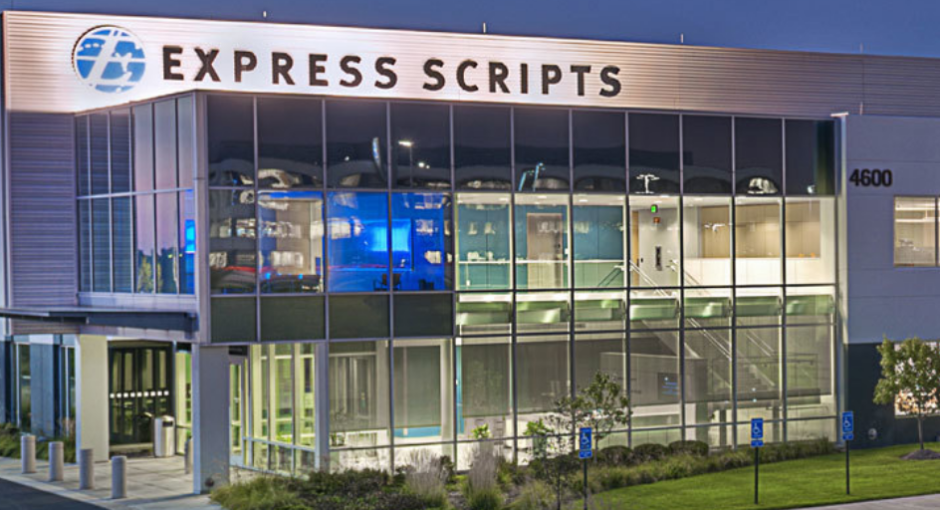Pharmacy benefits manager Express Scripts (ESI) told a hospital group and an HIV/AIDS clinic in recent days that it has “already granted numerous pharmacies extensions” to its controversial new 340B claims identification requirement that went into effect March 1.
ESI also said it “would welcome the opportunity to engage with your contracted pharmacies. Those pharmacies may either reach out to Express Scripts directly to finalize a solution that would best meet their respective needs, or if you would provide us with a list of contracted pharmacies, we will contact them directly.”
The PBM said, “We are sensitive to the role that 340B covered entities and their contracted pharmacies perform in providing affordable access to healthcare for America’s most vulnerable populations.” But it added, “In light of the ever-changing healthcare landscape, it is imperative that we stay vigilant in adhering to operational best practices, to ensure that we deliver best-in-class service to our clients and members.”
Groups representing hospitals and other 340B covered entities told ESI on March 26 that compliance with the company’s 340B claims identification requirement would be impossible without a massive investment of time and money. They asked the PBM to withdraw the new policy and work with them on the issue. Individual covered entities have expressed concerns about the requirement to ESI as well.
Most 340B contract pharmacy arrangements use a virtual inventory model in which pharmacies fill prescriptions with their own purchased stock, which when it runs out is replenished with the entity’s 340B-purchased stock.
ESI now requires, when a claim is determined post-adjudication to be 340B-eligible, that pharmacies resubmit the claim using a claims-transaction protocol called N1, with codes showing the claim was filled with 340B-purchased drugs. Entities say that they and their contract pharmacies are not equipped to use the N1 transaction. They also worry that their contract pharmacies, to remain in good standing with ESI, will stop filling the entities’ 340B-eligible prescriptions with 340B-purchased drugs for claims submitted to ESI for reimbursement.
ESI is the nation’s second largest PBM, handling 24% of all prescription claims, according to Drug Channels Institute. Total foregone 340B savings for covered entities could be significant if contract pharmacies stop filling 340B-eligible prescriptions billed through Express Scripts with 340B drugs. The losses would be even worse if other PBMs follow ESI’s example.
The March 26 joint letter to ESI expressing covered entities’ concerns came from the 340B Coalition, an umbrella group of 13 associations whose members include covered entities. ESI replied in an April 1 letter to coalition member 340B Health.
Tennessee’s Cempa Community Care, a 340B HIV/AIDS clinic that also has 340B sexually transmitted disease clinics and federally qualified health center look-alikes, wrote separately and earlier to ESI raising similar concerns. It got a letter in response from ESI on March 24 almost identical to the one that hospital group 340B Health got.
ESI did not respond to a request for comment yesterday about its letter to the hospital group. 340B Health President and CEO Maureen Testoni tweeted yesterday, “I have personally heard from many @340BHealth members who have told me that @ExpressScripts new mandatory retroactive submission process for identifying #340B claims is impossible to comply with. I urge Express Scripts to withdraw this policy.”
Another group representing health care providers enrolled in 340B also received a letter from ESI in response to its concerns about the requirement.
Express Scripts told 340B Health in its letter last week that “we can assure you, as we have every pharmacy who has contacted us, that the utilization of the N1 transaction for 340B claim identification will have no impact on a provider’s current or future reimbursement from Express Scripts or its participation in Express Scripts’ networks. The utilization of an N1 transaction is for informational purposes and will promote transparency as well as overall end-to-end alignment.”
“We can assure you that this change to our network participation requirement was thoroughly evaluated to ensure that the benefits do not impede the ability of our members to receive the advantages of the 340B program,” ESI said.
ESI said it has “encouraged 340B reporting on claims for many years and have explicitly required such reporting since August of 2020.”
“In acknowledgment that providers may not always be able to identify a 340B claim at point of sale, we expanded the ways in which a pharmacy can designate such claim through the N1 transaction, as such reporting format was established by NCPDP [the National Council for Prescription Drug Programs],” it said. “If your pharmacies would propose a different process, we would welcome that conversation.”
“It is never our intention to act in a way that is detrimental to 340B covered entities or their contracted pharmacies; rather, we are seeking to improve the quality of our pharmacy networks, control the skyrocketing costs of prescription drugs and encourage transparency in healthcare,” ESI concluded.
Covered entities and their 340B inventory management consultants have pointed out that NCPDP has indicated that, “unless all trading partners in the sequence are able to support” using the N1 transaction to pass along information identifying whether 340B drugs were used in connection with a claim, it “is not an effective solution for the business need.”


